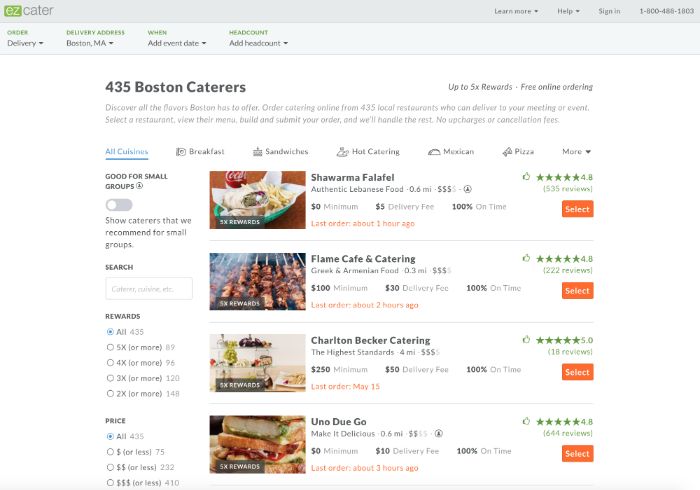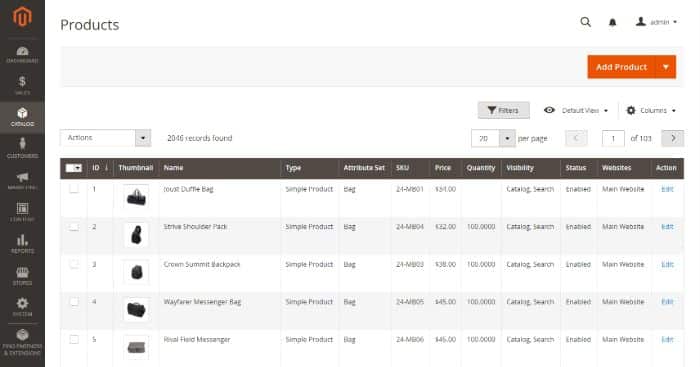B2B Catalog Management: Defined, Requirements & Suggestion
The B2B market is constantly changing. With the massive trend lean forward to multi-channel in recent years, businesses are changing how they handle their product data to form appropriate B2B catalog management methods.
To work on product catalog management is always one of the fundamental requirements to run a B2B company effectively, and this guide will show you how to develop it to fulfill today’s needs.
What Exactly Is B2B Product Catalog Management?

USEFUL READ for newcomers: What is B2B eCommerce? Take a look.
B2B Product Catalog Management is the act of customizing, optimizing and restructuring the wholesale product catalog for a fast and short buying process without the extensive cost of time and money for customers. If you can make it work, product catalog management promises great potentials in lowering cost and ensuring B2B product quality.
Moreover, B2B customers should be able to integrate the product catalog into their sales process without a sweat.
That said, companies can find it difficult to handle their product catalog in this manner without proper techniques or appropriate third-party tools.
What Is the Importance of B2B Product Catalog Management?
Before we get into the specifications, it’s important to understand why a product catalog is so important to B2B businesses and wholesalers.
Firstly, giving customers easy access to your digital catalog should give you a significant competitive edge. Not to mention, if your catalog is ready with a decent amount of product data with precise description, it would be a blessing since customers won’t have to put on labor force just to scroll through your product pages to collect this information.
Secondly, the B2B product catalog usually is incorporated by real-time retailer integration. You will easily produce new products, adjust prices, and update product descriptions as you have the opportunity to purchase catalogs from your suppliers.
Order and pricing quality increases as you share catalogs with your clients. It also saves end consumers money on labor.
Effective B2B Product Catalog Management: 6 Important Requirements To Remember

ALSO, CHECK OUT Content Management System for B2B eCommerce!
To enhance their B2B catalog management, it’s necessary for merchants to satisfy the following criteria.
Suitable Trading Partners
For large businesses, direct retailer incorporation is a common industry procedure. Smaller retailers and their vendors, on the other hand, can find these types of services prohibitively expensive. Trading partners, both consumers and vendors, need hardware that allows for direct product catalog management.
Flexible Product Design & Interface
Linking supplier details into product search pages and product description pages can be challenging at times. When it comes to merging supplier catalogs, new “plumbing” is often needed.
Real-Time Stock Amount Preview
Supplier catalogs should be shown alongside in-stock inventory thanks to real-time convergence.
Supported CSV/Excel Imports
To exchange catalog data, CSV and Excel are the most common file formats to be used. In order to communicate with your clients and vendors, your software & devices must accommodate these two formats.
Field Level Mapping
Merchants must be able to map data fields in order to import data from their partners. Then you can map the imported data fields to the data structure of your program.
Structure Re-Establishment
The ability of data import applications to recall previously downloaded file mapping structures is known as chart memorization. A merchant’s systems should, in theory, be able to remember transition laws.
For eg, automatically updating price based on cost or converting ALLCAPS to mixed case. When your import process remembers these rules, data imports become faster and more accurate.
Choosing a B2B Catalog Management Solution: What To Look For?
To maintain the consistency and quality data in their B2B catalog, wholesale merchants are searching for appropriate solutions. It’s possible that the absolute solution could easily be your POS, ERP, CMS or any other eCommerce product data management software.
If you’re a manufacturer, the software should be able to import & export large supplier catalogs in CSV format in a short time period. Anyhow, you’ll need both import and export capability if you’re a retailer and a manufacturer.
These requirements for B2B product catalog management are provided by leading tech vendors, which means your choice of solution should enable you to:
- Use a standard-based API to integrate/exchange external catalogs in real-time on a multichannel network.
- Configure or customize product presentation displays to provide real-time supplier product data queries.
- Create and memorize new importing/exporting data models.
- Endorse data transformations with custom import/export rules.
If your solution satisfied all of the listed ideas, then you might have a solid choice of software to handle your product catalog.
Recommendations Of B2B Catalog Management Software
CMS or Catalog Management Software is the product catalog management solution to organizes and consolidates eCommerce product details into a centralized, digital point of reference for both sellers and buyers known as a product catalog.
By prompting an administrator to change inconsistent product data in a database, catalog management ensures inventory data accuracy, enabling users to make smarter buying decisions. The store will be able to assist online shoppers in making purchases by including necessary information such as product names, filters, features, prices, suppliers, available stocks and internal codes.
Below are the 3 recommended B2B catalog management solutions for references.
1. Syndigo Content Experience Hub

Syndigo Content Experience Hub Platform allows various users like retailers, distributors, and manufacturers to access product data easily. Suppliers can also make sure that all of their delivery channels have consistent and reliable product information. Thanks to the simplified display, retailers can now have access to a larger product amount in-store and online within a short time frame.
2. Salsify Commerce Experience Management Platform

Salsify helps brands take the lead on the digital shelves by delivering the commerce experiences that customers desire, no matter where they make online purchases. Noticeably, Salsify is used by some of the world’s most well-known brands, including Mars, L’Oreal, Coca-Cola, Bosch, and even GSK. Their technology features a combination of PIM, DAM, which creates a Product Experience Management system with core commerce features to enable purchases via retailer/distributor networks, marketplaces, social commerce, and direct-to-consumer (D2C) channels.
3. ServiceNow IT Service Management

ServiceNow is an automatic IT service with a product catalog management feature that allows suppliers to easily manage their inventory and keep consistency across all channels. It has a simpler, smarter experience, which is great for fast controls over product data.
We hope that this article has been helpful for you. Follow our blog if you are interested in more eCommerce and technology articles. BSS Commerce is one of the leading Multi-platform eCommerce solutions and Magento web development services providers globally. With experienced and certified developers, we commit to bringing high-quality products and services to optimize your business effectively.



